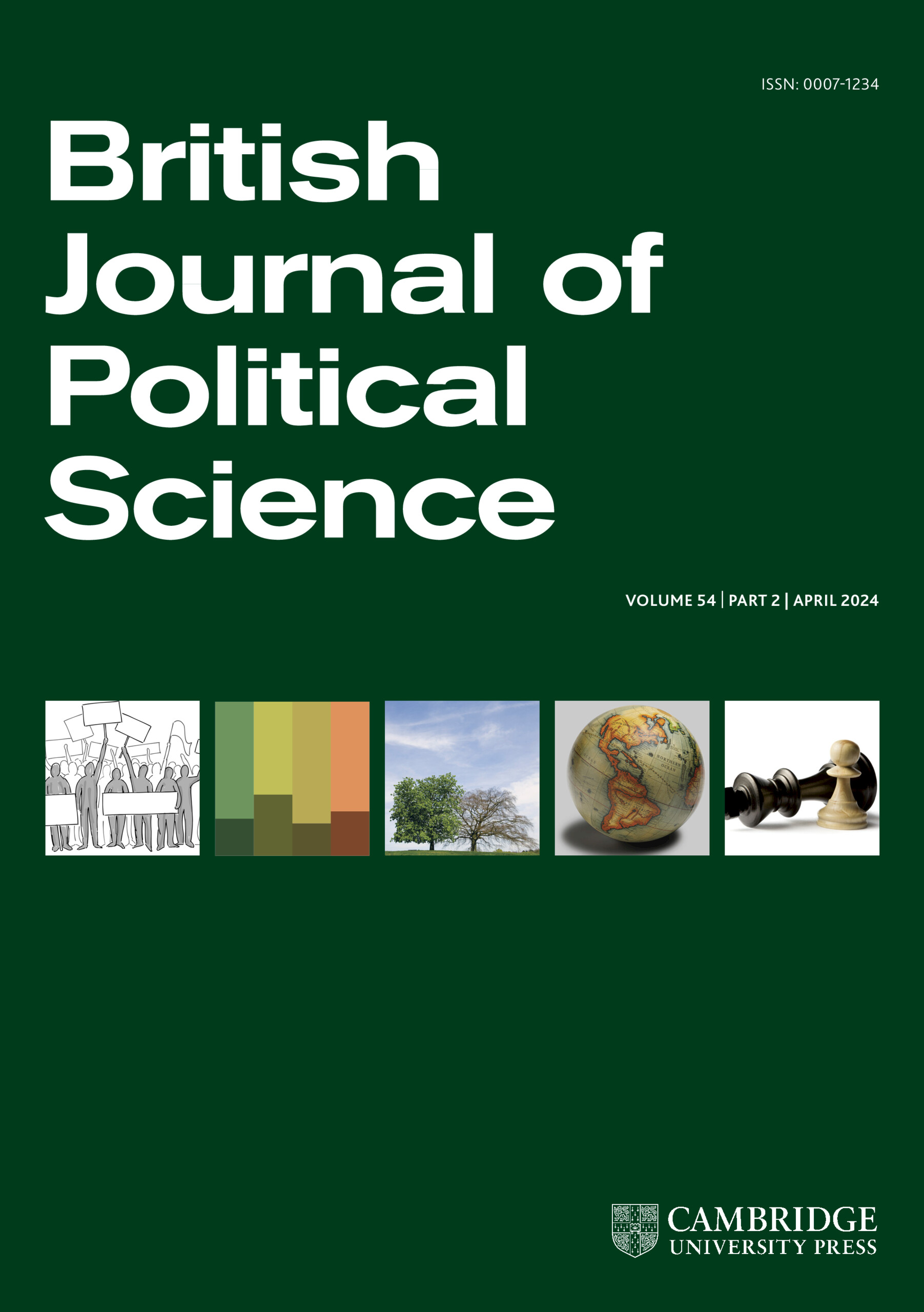身份宣传
IF 4.6
1区 社会学
Q1 POLITICAL SCIENCE
引用次数: 0
摘要
政治精英经常通过宣传来改变特定社会群体成员的社会身份,从而影响其行为。实证文献表明,这种“身份宣传”在动员公民方面通常是有效的。然而,尽管接触宣传的后果取决于其内容,但我们对哪些因素影响了宣传内容知之甚少。为了深入了解宣传内容的决定因素,我分析了一个博弈论模型,在该模型中,政治精英提出了一种新的身份规范,公民对其进行肯定或拒绝。我还表明,当公民的动员成本更高,或者宣传者可以廉价地分配物质激励时,可能会出现更苛刻的身份规范。相比之下,公民之间战略互动的性质对身份规范有着模糊的影响。本文章由计算机程序翻译,如有差异,请以英文原文为准。
Identity Propaganda
Political elites often employ propaganda to affect the behavior of a particular social group by altering its members' social identities. The empirical literature has demonstrated that this kind of ‘identity propaganda’ is generally effective at mobilizing citizens. However, while the consequences of being exposed to propaganda depend on its content, we know little about which factors shape propaganda content. To gain insight into the determinants of propaganda content, I analyze a game-theoretic model where a political elite proposes a new identity norm, and citizens affirm or reject it. I demonstrate that, in equilibrium, the propagandist exploits his agenda-setting power to design effective identity norms. I also show that more demanding identity norms can emerge when citizens’ mobilization costs are higher, or the propagandist can cheaply allocate material incentives. By contrast, the nature of strategic interaction among citizens has an ambiguous effect on identity norms.
求助全文
通过发布文献求助,成功后即可免费获取论文全文。
去求助
来源期刊

British Journal of Political Science
POLITICAL SCIENCE-
CiteScore
8.70
自引率
4.00%
发文量
64
期刊介绍:
The British Journal of Political Science is a broadly based journal aiming to cover developments across a wide range of countries and specialisms. Contributions are drawn from all fields of political science (including political theory, political behaviour, public policy and international relations), and articles from scholars in related disciplines (sociology, social psychology, economics and philosophy) appear frequently. With a reputation established over nearly 40 years of publication, the British Journal of Political Science is widely recognised as one of the premier journals in its field.
 求助内容:
求助内容: 应助结果提醒方式:
应助结果提醒方式:


